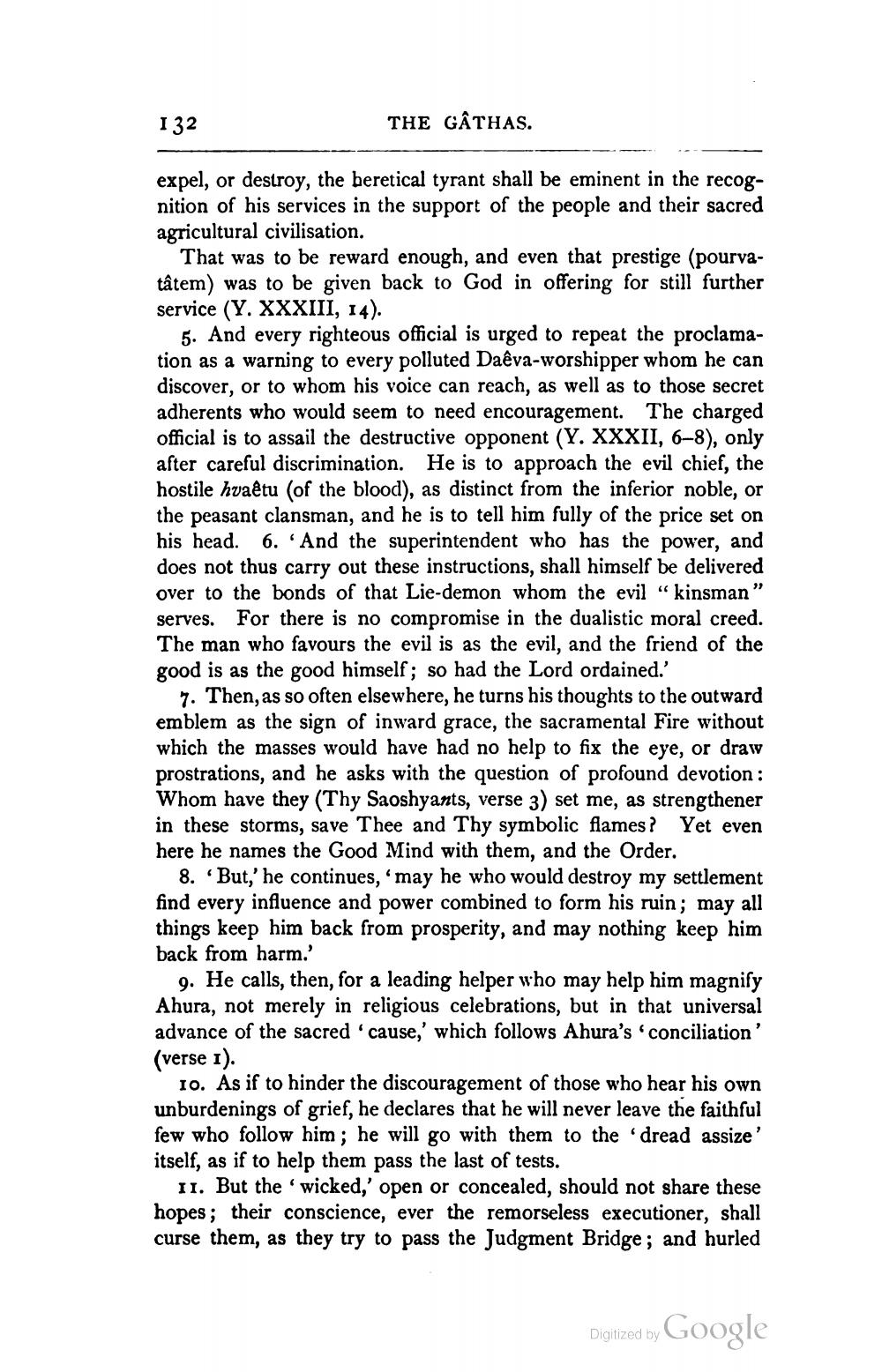________________
132
THE GÂTHAS.
Salion.
expel, or destroy, the beretical tyrant shall be eminent in the recognition of his services in the support of the people and their sacred agricultural civilisation.
That was to be reward enough, and even that prestige (pourvatâtem) was to be given back to God in offering for still further service (Y. XXXIII, 14).
5. And every righteous official is urged to repeat the proclamation as a warning to every polluted Daêva-worshipper whom he can discover, or to whom his voice can reach, as well as to those secret adherents who would seem to need encouragement. The charged official is to assail the destructive opponent (Y. XXXII, 6–8), only after careful discrimination. He is to approach the evil chief, the hostile hvaêtu (of the blood), as distinct from the inferior noble, or the peasant clansman, and he is to tell him fully of the price set on his head. 6. And the superintendent who has the power, and does not thus carry out these instructions, shall himself be delivered over to the bonds of that Lie-demon whom the evil “kinsman" serves. For there is no compromise in the dualistic moral creed. The man who favours the evil is as the evil, and the friend of the good is as the good himself; so had the Lord ordained.
7. Then, as so often elsewhere, he turns his thoughts to the outward emblem as the sign of inward grace, the sacramental Fire without which the masses would have had no help to fix the eye, or draw prostrations, and he asks with the question of profound devotion : Whom have they (Thy Saoshyants, verse 3) set me, as strengthener in these storms, save Thee and Thy symbolic flames? Yet even here he names the Good Mind with them, and the Order.
8. But,' he continues, may he who would destroy my settlement find every influence and power combined to form his ruin; may all things keep him back from prosperity, and may nothing keep him back from harm.'
9. He calls, then, for a leading helper who may help him magnify Ahura, not merely in religious celebrations, but in that universal advance of the sacred 'cause,' which follows Ahura's 'conciliation' (verse 1).
10. As if to hinder the discouragement of those who hear his own unburdenings of grief, he declares that he will never leave the faithful few who follow him; he will go with them to the dread assize' itself, as if to help them pass the last of tests.
11. But the 'wicked,' open or concealed, should not share these hopes; their conscience, ever the remorseless executioner, shall curse them, as they try to pass the Judgment Bridge; and hurled
Digitized by
Digitized by Google




